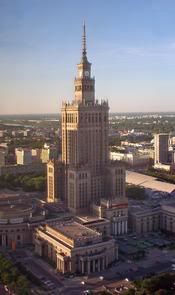Saving Africa, the conservative way
Economist.com:
Bob Geldof and Bono have some unlikely friends in America
RICK WARREN is arguably the most influential evangelical pastor in America. His Saddleback church in California is the largest megachurch in the country, with 20,000 worshippers every Sunday; one of his websites, Pastors.com, provides “resources” such as sermons to 140,000 pastors around the country; and his book, “The Purpose-Driven Life”, has sold 25m copies. Mr Warren now has a new cause. God has told him to serve the world's downtrodden, he says, particularly in Africa; and Saddleback is sending missionaries there to fight poverty and disease, starting in Rwanda.
Mr Warren is not alone. America's evangelicals are beginning to embrace international causes such as poverty with the same fervour that they have long brought to domestic causes. The overseas issue that first excited their interest was a specifically religious one—the persecution of their fellow Christians around the world. But since the passage of the International Religious Freedom Act in 1998, in the teeth of fierce opposition from the Clinton administration, their interest has broadened to include America's policies on, among other things, sex trafficking, the civil war in Sudan, North Korea, international debt relief and AIDS. They are at the centre of a whirligig of congressional legislation, presidential initiatives, diplomatic manoeuvres, international protests and stock-divestment campaigns.
If the European campaign for aid for Africa is dominated by bleeding-heart liberals, poring over the Guardian and L'Humanité, the American campaign is dominated by Bible-believing Christians, poring over their copies of Christianity Today and discussing abstinence pledges. In Europe, the campaign to help Africa is fronted by a foul-mouthed Irish rock star. In America, you are more likely to run into Sam Brownback, a fiercely conservative senator from Kansas, who has sponsored legislation condemning Sudanese slavery, or Chuck Colson, a born-again Nixon operative who served time for Watergate and wants American Christians to recover the heritage of William Wilberforce. Both would probably tell Sir Bob Geldof to get his hair cut.
By no means all these Christian activists are card-carrying conservatives. Jim Wallis, a prominent left-wing evangelical, is leading an ecumenical group of Christians to Britain for a pre-G8 summit. Mr Warren has shrewdly branded himself as a moderate (though he subtly signalled his support for George Bush in the last election). But over the past decade, much of the hard lifting has been done by members of the religious right.
That is partly because conservative churches are far more buoyant than their liberal rivals are. The Southern Baptists send more missionaries abroad than all the mainline Protestant denominations combined. But it is also because they are much better placed to advocate compassion in the Bush White House. During a discussion of a plan to spend $15 billion fighting AIDS, the president turned to his silver-penned speech-writer (and fellow Christian), Michael Gerson. “Mr President,” came the reply, “if this is possible, and we don't do it, we will never be forgiven.”
Until recently, evangelical Protestants had taken a rather isolationist view of foreign policy (with a particular loathing for the unGodly UN). Why are they now so interested in global poverty? Allen Hertzke, author of the excellent “Freeing God's Children: The Unlikely Alliance for Global Human Rights” (Rowman & Littlefield), points to two developments.
First, evangelical America has become increasingly sophisticated. The teachers and bankers flocking to the megachurches want to spend their political capital on more than just abortion and gay marriage. Second, Christianity has shifted to the developing world. In 1900, 80% of the world's Christians lived in Europe and in America; today, 60% live in the developing world. More Presbyterians go to church in Ghana than in Scotland. America's evangelical churches are intent on gathering souls in these new places. In 2002, for instance, the Southern Baptist Convention spent $290m abroad, establishing 8,369 churches and baptising 421,436 converts. Many missionaries return home shocked by the poverty and disease that they have encountered.
A billion volunteers
This new side to evangelical America has all sorts of consequences for American politics. White Protestants have pulled the Republican Party to the “right” on domestic causes for the past quarter-century; now they are beginning to pull the party to the “left” on international issues. This is producing some unexpected political alliances—with the black congressional caucus over Sudan, for example, and with feminists such as Gloria Steinem over sex slavery. It is softening the religious right's sometimes fearsome image. And it is handing power to more moderate figures such as Mr Warren who can mediate between right and left.
Evangelicals are also changing foreign policy. In the perennial battle between Kissingerian realists and neoconservative idealists in Washington, they help tip the balance towards idealism. They are also helping to reconfigure America's somewhat moribund human-rights movement (though evangelicals are notably less upset about Guantánamo Bay than Amnesty International is).
There are undoubtedly dangers in marrying aid with faith. Evangelicals can sound uncomfortably like latter-day Dr Livingstones, determined to convert the heathen to Christianity and abstinence. They also find it difficult to work with people they disagree with (including each other). But they do have things to offer, including a global network of churches that can deliver everything from education to medical treatment. “We've got more volunteers than anybody else,” says Mr Warren. “Government doesn't have a billion volunteers. Business doesn't have a billion volunteers.














0 Comments:
Post a Comment
< Main